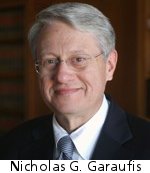Article from: www.thenewspaper.com/news/35/3583.asp
9/12/2011
New York: Federal Court Overturns Search on a Hunch
Federal court rules driving a Ford Crown Vic with New Jersey plates and people in the back seat is not justification for a search.
 Police may not pull over a car simply because two passengers are riding in the back seat, according to a September 2 ruling of the US District Court for the Eastern District of New York. On December 30, 2009, a trio of New York Police Department officers had a hunch that a passing gold-colored Ford Crown Victoria with New Jersey license plates might secretly have been charging for rides.
Police may not pull over a car simply because two passengers are riding in the back seat, according to a September 2 ruling of the US District Court for the Eastern District of New York. On December 30, 2009, a trio of New York Police Department officers had a hunch that a passing gold-colored Ford Crown Victoria with New Jersey license plates might secretly have been charging for rides.
The vehicle broke no traffic laws, but the officers became suspicious because in the dark at 1:30am, the officers only saw dark silhouettes of people in the back seat -- and nobody in the front passenger seat. At trial, the officers were unable to provide a description of the vehicle, or identify any unusual activity from its occupants. None had ever seen this Crown Vic before. Officer Trent Narra testified that he had a "hunch" that the car was violating the New York City Administrative Code that fines individuals who operate cab service on the side without paying the $686,000 fee for a taxi medallion.
When the car was pulled over, the three officers surrounded it. Passenger Devon Bristol did not wish to remain inside the Ford, so he began exiting the vehicle. He was not ordered to stay in the car. As he got out, Bristol brushed against Sergeant Eric Konoski, who claimed that he felt an object "consistent with a firearm." Konoski then ordered Bristol to stop, tackled him to the ground, handcuffed and searched him. Konoski found a 9mm Hi-Point pistol.
Once they had the gun violation, the NYPD officers dropped all interest in the Crown Vic driver and ignored the question of whether it was an unlicensed livery cab or not. They did not even run a license or registration check. The court blasted the justification given for the initial traffic stop.
"By the officers' own admissions, they had no way -- based on their observations of the driver and passengers -- of determining whether the car's occupants were engaged in lawful activity or a traffic violation," Judge Nicholas G. Garaufis wrote. "To permit the seating positions of passengers alone to create reasonable suspicion would expose many innocent travelers to near-random searches.... The officers further testified that Crown Victorias are commonly used as personal, not-for-hire vehicles as well... The court does not credit any suggestion that seeing a car from New Jersey driving in Brooklyn is anything but commonplace, and finds that even in combination with other factors the car's out-of-state plates are innocuous."
With the traffic stop suppressed, evidence gathered from the search of Bristol was ruled inadmissible. He was released Wednesday on a $10,000 bond. In footnotes, Judge Garaufis questioned the NYPD's credibility in the case.
"Sergeant Konoski's demeanor at the suppression hearing was defensive and his answers about his conduct before and during the vehicle stop were less than forthright," Garaufis wrote. "The court was troubled by the officers' coordinated falsification of their memo book entries, all three of which incorrectly gave the address of a nearby public housing project as the site of the arrest. Furthermore, Sergeant Konoski has been the subject of a series of departmental investigations into his conduct as a police officer, including his improper conduct with regard to searches and seizures.... The government has informed the court that the NYPD is currently investigating Sergeant Konoski and Officer Narra on charges that include entering a woman's home without authorization, making improper memo book entries, and corruption."
A copy of the decision is available in a 121k PDF file at the source link below.
Source: US v. Bristol (US District Court, Eastern District New York, 9/2/2011)
Permanent Link for this item
Return to Front Page
 Police may not pull over a car simply because two passengers are riding in the back seat, according to a September 2 ruling of the US District Court for the Eastern District of New York. On December 30, 2009, a trio of New York Police Department officers had a hunch that a passing gold-colored Ford Crown Victoria with New Jersey license plates might secretly have been charging for rides.
Police may not pull over a car simply because two passengers are riding in the back seat, according to a September 2 ruling of the US District Court for the Eastern District of New York. On December 30, 2009, a trio of New York Police Department officers had a hunch that a passing gold-colored Ford Crown Victoria with New Jersey license plates might secretly have been charging for rides.